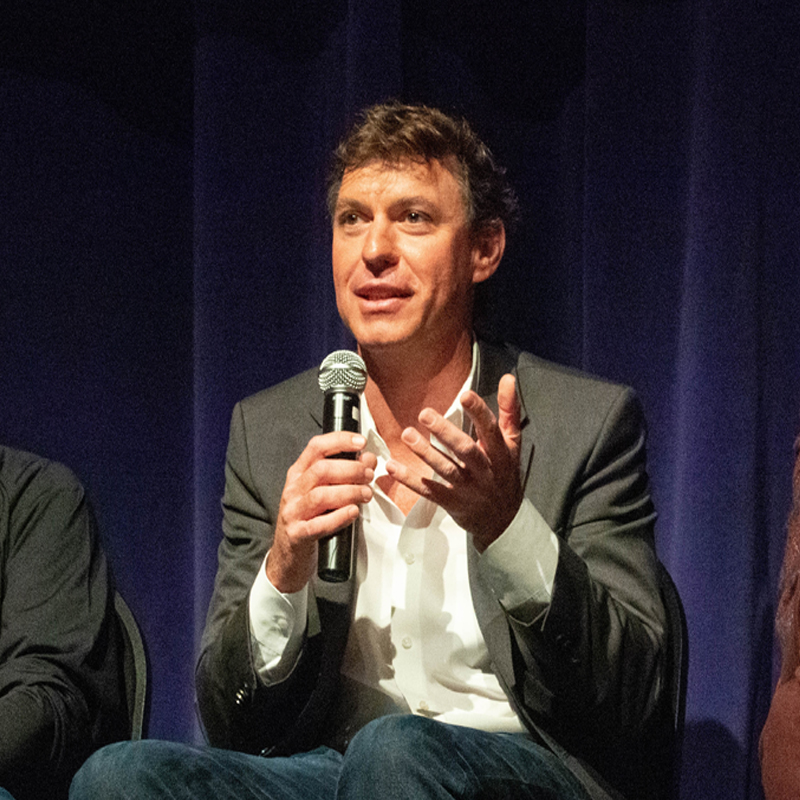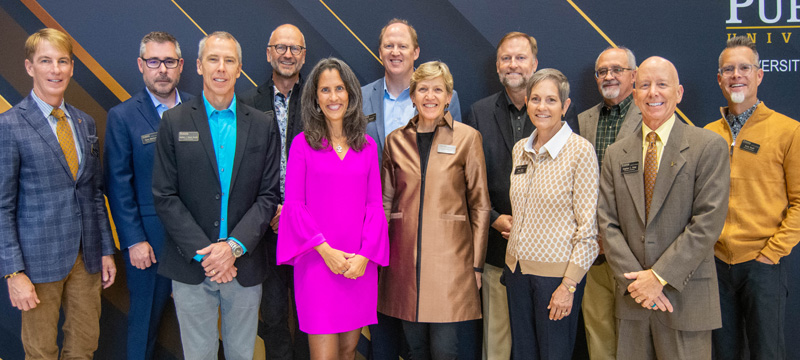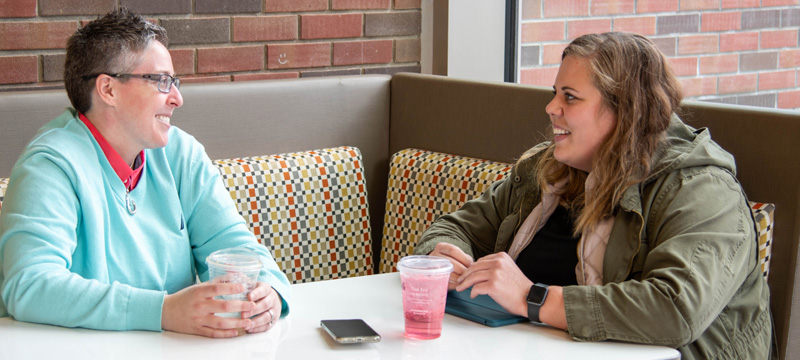Student Life Celebrates: Five Years of Impact Through Executive-in-Residence Program

One of the key components of the Student Life experience is granting students the chance to learn in ways not afforded within classrooms. One program that continues to award unique opportunities to students is University Residences’ Executive-in-Residence (EiR), which celebrated its fifth anniversary during Homecoming 2019. The celebration included a gathering of returning executives culminating in a panel discussion.
EiR was established in 2014-15 to connect students to alumni industry leaders. Four executives typically visit campus for up to a week each semester, living on campus in an apartment in Third Street Suites while they interact with and mentor students in various settings, from lecture halls and residence halls to dining courts and basketball courts. The hallmark of the program is the opportunities it provides for students to engage with executives one-on-one and in small group settings.
Each visiting executive helps plan their visits according to their areas of expertise and even their own hobbies and interests. Organized interactions with students can include meetings with academic departments, Residential Life groups, other student groups and individual interaction during Coffee & Consulting, which allows students one-on-one time to receive career advice, discuss other areas of the executive’s expertise or share thoughts on their Purdue experience. Events organized by executives have included poker nights, racquetball tournaments, “Shark Tank” style exercises and executive-board simulations which teach students about the decision-making process inside an executive boardroom.

Student ambassadors are also part of the planning process and each executive’s visit. Ambassadors attend EiR committee meetings, escort executives to different events on campus and provide assistance at EiR events, which can range from introducing executives to helping facilitate discussions. These duties lead to even more one-on-one time with executives.
Sophomore EiR student ambassador Brandon Dimitri says two major lessons he’s learned from visiting executives are to be willing to take risks and to get involved in different clubs on campus. Dimitri says he has learned lessons from being an EiR ambassador that he can also apply to his career.
“I think as a whole it’s helped me to improve my professional skills just by talking with these people who have had successful careers and are now holding these executive positions within companies,” says Dimitri, who is majoring in aerospace engineering. “It’s real unique to say I had this experience and take some of the things they’ve taught me about finding that special niche within a career.”
The keynote event of the EiR anniversary weekend was a panel discussion featuring 15 returning executives. Moderated by Drew Mattison, the event brought more than 430 years of combined professional experience in front of students, faculty and staff on the Fowler Hall stage.
While there were light-hearted moments shared with the audience, particularly in relating stories from especially difficult classes, executives also related pieces of advice to those in attendance. One theme that was reflected throughout the discussion was that students should try new things and not be discouraged by setbacks.
“These four years are a gift,” said Emily Liggett, CEO of Novatorque. “It’s a laboratory and a safe space to try new things and take some risks and it’s in those risks that we get out of our comfort zone and we really learn a lot. We learn about ourselves and we grow a tremendous amount.”
Returning executives often remark about how focused students are on finding the ideal career and perfect job right out of college. Given the circuitous journey many of the returning executive have taken to their current positions, many of the executives, such as Steve Furry, CEO and Founder of Catalyst Healthcare Advisors, emphasize to students that they shouldn’t be discouraged if they don’t find their dream job right immediately after graduating.

“If there’s one thing I had to hone in on in the message we’ve tried to share with students who come in and speak with us is that your career path from here is not always a straight line,” Furry said. “We’re here to tell you that path has a lot of zigs and a lot of zags. It’s ok if you fall forward every once in a while. You’re not going to get it right every time.”
Hearing messages like this is reassuring to students like Dimitri, who says he feels more freedom to experiment with different jobs to find the right fit.
“After meeting some of these people and hearing their stories, I don’t feel like I have to, on the first try, get the job right,” says Dimitri. “If I find out that I don’t like what I’m doing at first, I have the freedom to change and that’s not necessarily going to hold me back for my entire career. I’ll also have that chance to grow and if I work hard like these people, both in school and in my career, I’ll be able to maybe one day hold one of these positions.”
EiR continues to build momentum. After a successful spring semester that brought four executives to campus, EiR is booking executives well into the future.
 .
.